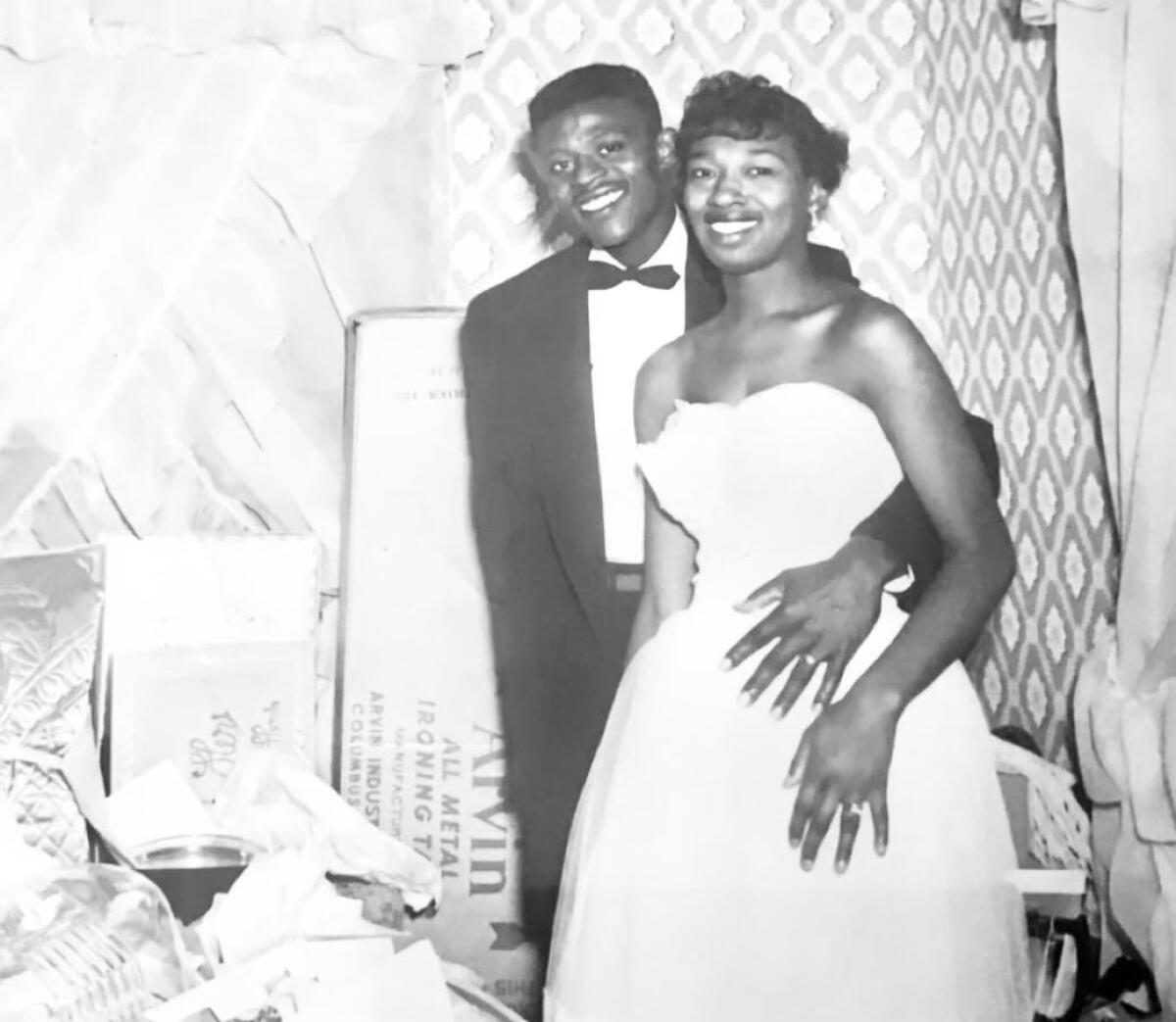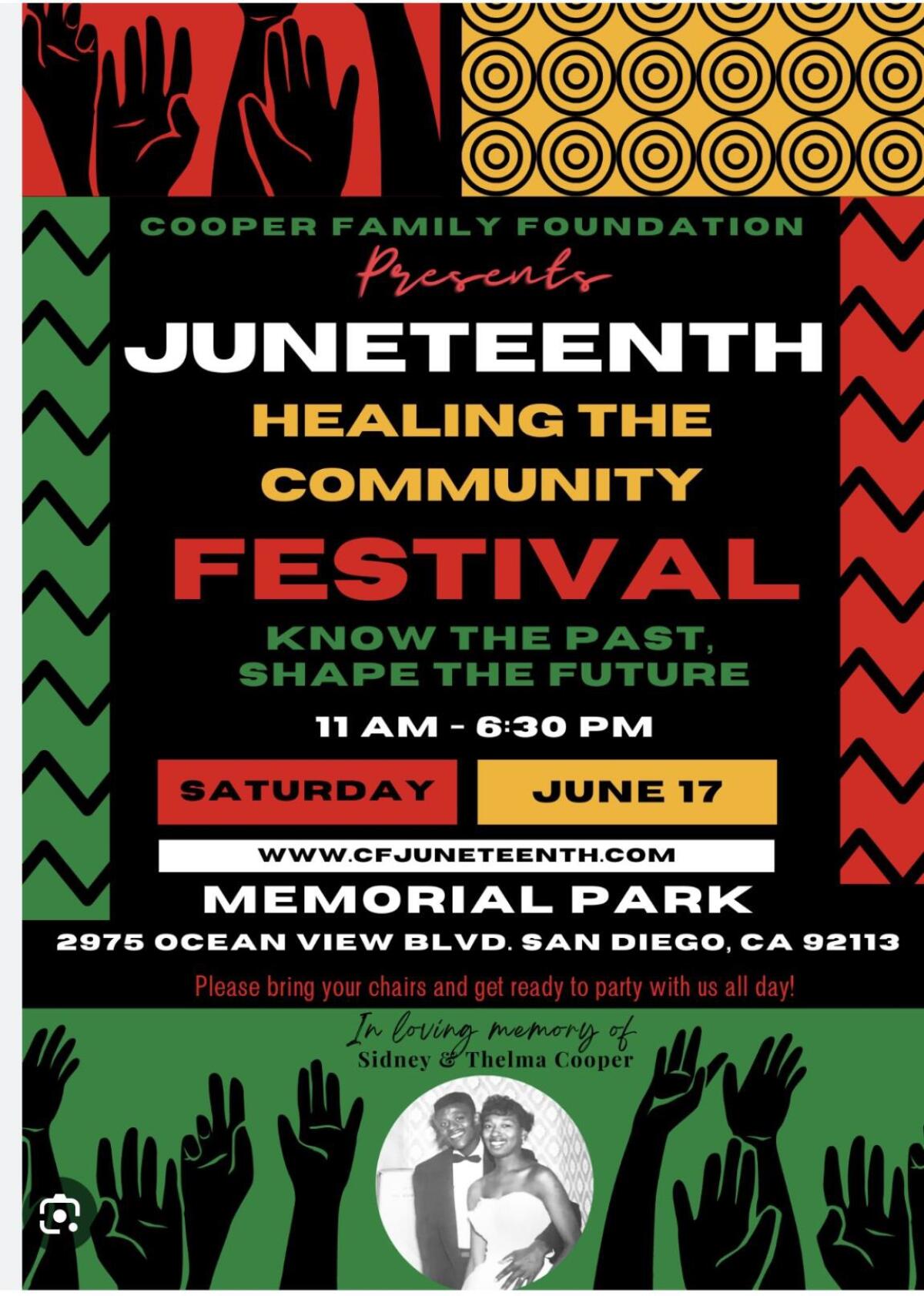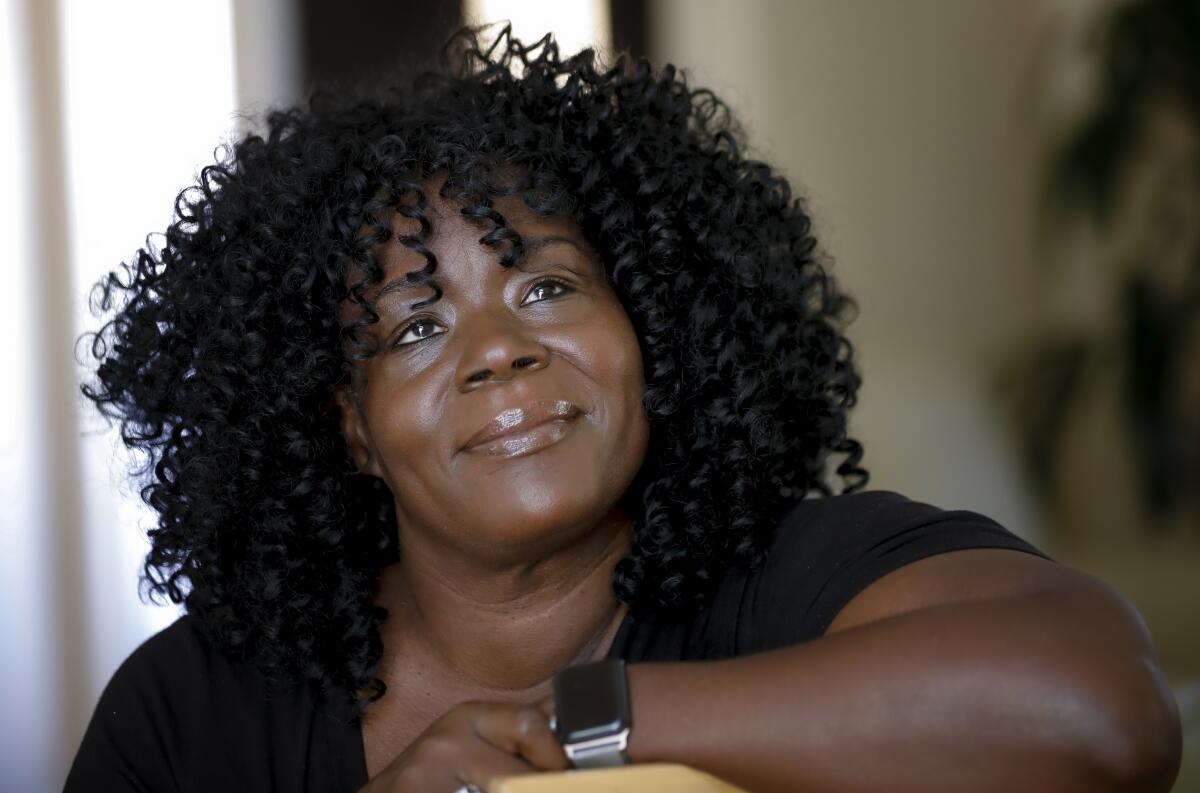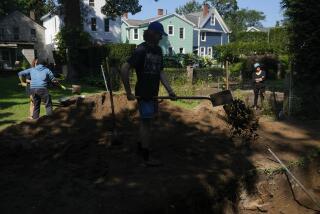A couple wanted to share a burial plot. When the wife died 22 years after him, his body wasn’t there

- Share via
SAN DIEGO — The Cooper family wants to know where Sidney Cooper Sr.’s remains are.
For 22 years after his death, friends and family of the longtime San Diego businessman, who was affectionately known as the Mayor of Imperial Avenue, visited what they believed was his final resting place at Greenwood Memorial Park and Mortuary.
His beloved wife, Thelma, was supposed to be buried next to him in a plot the couple purchased three decades ago. But when Thelma died in March, the family received a call from the management at Greenwood. Sidney’s body and casket were not where they were supposed to be in the couple’s plot, and apparently were never buried there. Cemetery staff did not know the whereabouts of his remains.
Three months later, they still don’t.
“I was absolutely distraught,” Lana Cooper-Jones said Friday of the moment she got the call from the cemetery about her father’s missing body. “It was like losing my father again, as well as my mom.”

Attorneys for Cooper-Jones and her siblings have prepared a lawsuit against the cemetery and its parent company that they planned to file late Friday or early next week — the timing of which coincides with Saturday’s Cooper Family Foundation Juneteenth Freedom Festival at Memorial Park in Logan Heights.
The lawsuit seeks to force the cemetery to find the patriarch’s remains and compensate the children for damages.
“Greenwood had one responsibility, to bury this couple together, and they completely failed,” said attorney Eric Dubin, who is representing the family along with Annee Della Donna.
Through a spokesperson, the cemetery said it was working to fix what happened and said the issue occurred under previous ownership.
“Greenwood Memorial Park and Mortuary has proudly and dutifully served families and the San Diego community with care for over 300 years,” the spokesperson wrote in a statement. “While the placement of this family’s loved one occurred over 20 years ago under previous ownership and management, we recently discovered an issue with placement and are diligently working to confirm the placement of the loved one. Our hope is to reunite the loved ones as intended as soon as possible.”
According to Cooper-Jones and the family’s attorneys, Sidney and Thelma purchased their plot at Greenwood around 1992. The cemetery is just two blocks from the family’s Mountain View neighborhood home in a community the couple cared for deeply.
“He was a veteran, and he was all about the community,” Cooper-Jones said of the neighborhoods along Imperial Avenue, including Logan Heights, Mount Hope, Mountain View and Lincoln Park. “He loved that community — he had a house two blocks from Greenwood, on 38th and Imperial; he had a business on Imperial; he wanted to be buried on Imperial.”
Sidney Cooper Sr., who was 71 when he passed away in 2001, was born in the all-Black town of Red Bird, Okla., Cooper-Jones told the Union-Tribune in a 2020 interview. Each year on June 19, his hometown would celebrate Juneteenth, a holiday marking the day in 1865 when word of the Emancipation Proclamation finally reached the final slave holdout of Galveston, Texas, more than two years after President Abraham Lincoln signed the order freeing enslaved Black people in the United States.

Cooper-Jones said her father continued to celebrate Juneteenth each year when he arrived in San Diego as a teenager. He and Thelma, who was from New Orleans, met on a blind date. He worked as a barber, she as a beautician, and he opened a produce store. Their family’s Juneteenth celebrations grew, first with family and friends at Southcrest Park and later in the parking lot of his store.
After Sidney’s death, the family created the Cooper Family Foundation to carry on his legacy and celebrate each year with the Juneteenth Freedom Festival. This year’s festival is “marred” by what the family is going through, Dubin said.
Cooper-Jones said it’s a difficult time for her and her siblings. “We do this every year to honor our father,” she said. “Now, we don’t even know where he is.”
Cooper-Jones said that when her father died, they held a graveside service, but they didn’t witness his casket being lowered into the ground.
According to the family and the attorneys, cemetery officials have said they might have an idea where his casket was buried. An underground probe detected the presence of a casket in a different plot that’s supposed to be empty, Dubin said. The family wants that body exhumed and the DNA tested, but so far they say that hasn’t been done.
Cooper-Jones said the explanations about where her father’s body might be have changed several times, and paperwork that Greenwood had on file had slight alterations compared with the paperwork she found in her mother’s belongings. That prompted her and her siblings to seek out the attorneys for help.
“The family can’t get closure because their beloved parents, these pillars of the community, are still not together for eternity,” Dubin said.
The Cooper family is not alone in its suffering, and sometimes the issue is more widespread. In 2010, a government investigation found Arlington National Cemetery had lost track of the remains of 200 people. About a decade ago, state officials in Tennessee closed a cemetery after learning that hundreds of bodies were not buried where they were supposed to be.
Police and FBI agents in Detroit dug up 20 graves in 2021 as part of an investigation launched after a family who wanted to move their loved one to a different cemetery learned that his body was not buried in his assigned grave. Earlier this year, families sued a North Carolina cemetery after it apparently lost track of where some people were buried.
Cooper-Jones said the family was at peace when Thelma died on March 11 after 92 fulfilling years, but that feeling has been upended since learning her father’s remains are missing.
“My mother only chose to be buried because my father wanted to be buried — otherwise, she would have been cremated,” Cooper-Jones said. “And now she’s buried there alone. It’s heartbreaking.”
Union-Tribune staff writer Lisa Deaderick contributed to this report.
More to Read
Updates
1:02 p.m. June 17, 2023: Additional information about when the lawsuit was filed was added to the story.
Sign up for Essential California
The most important California stories and recommendations in your inbox every morning.
You may occasionally receive promotional content from the Los Angeles Times.











